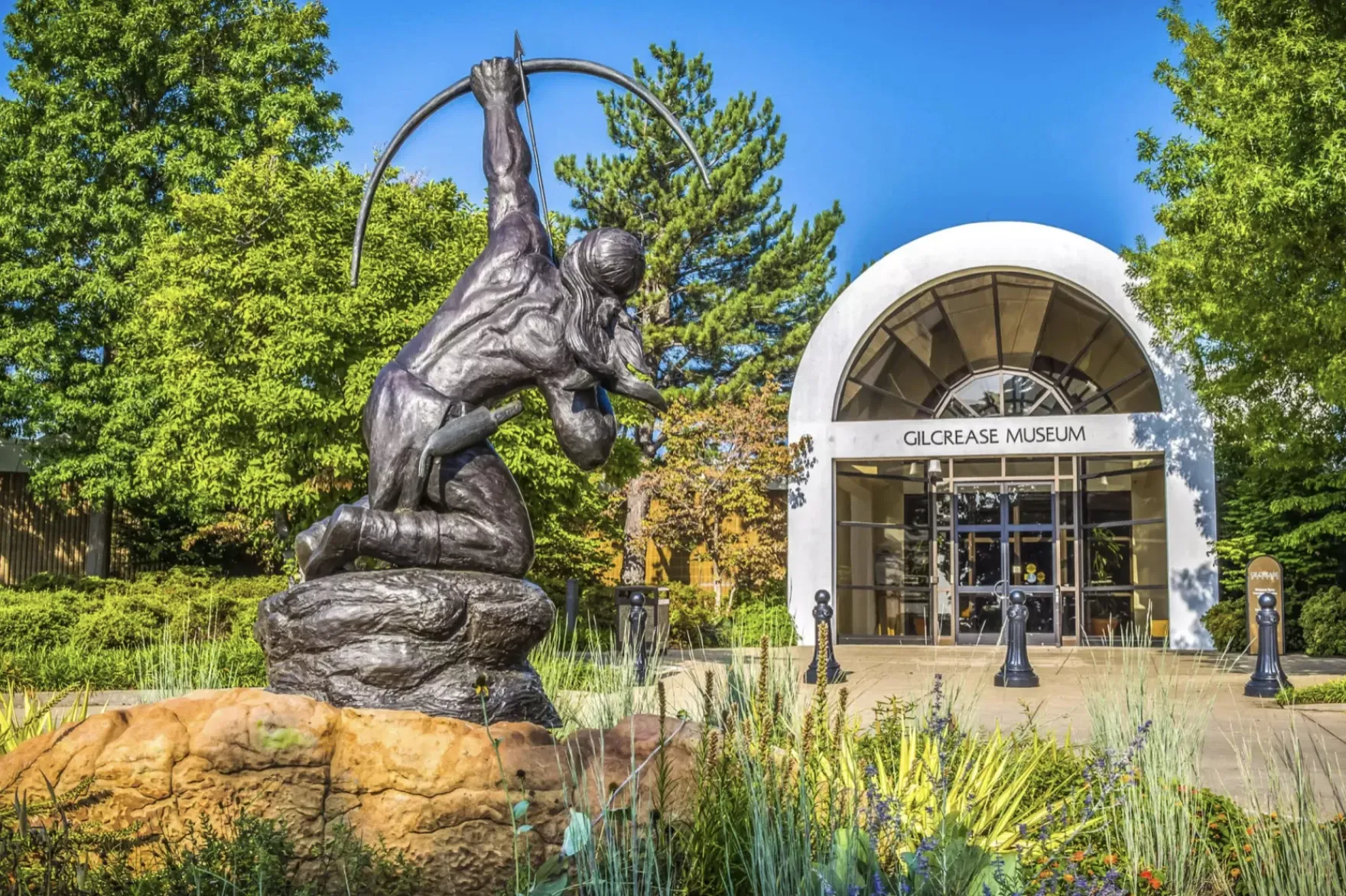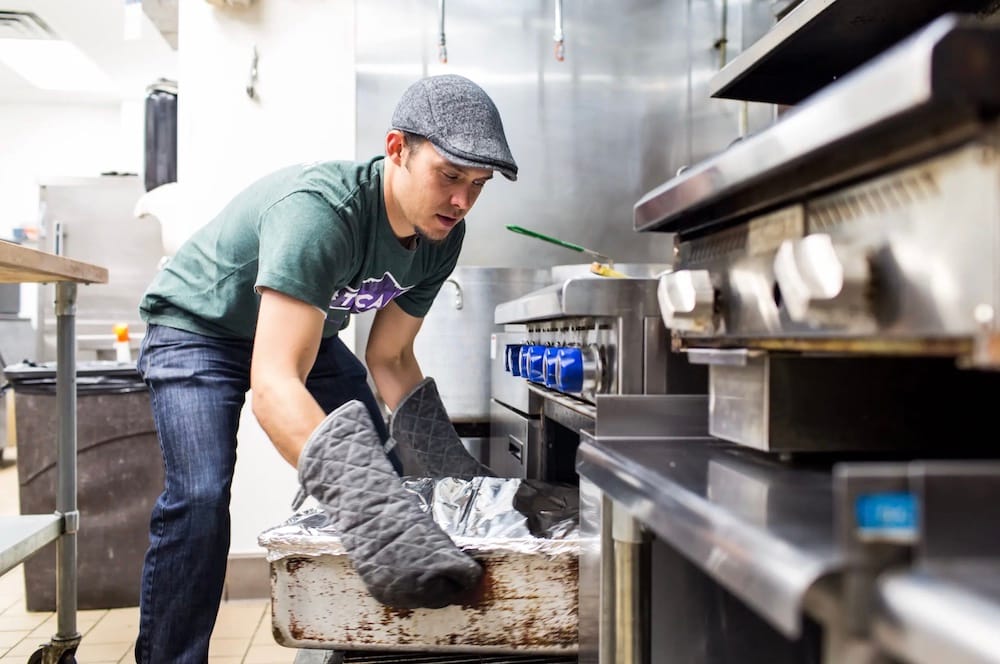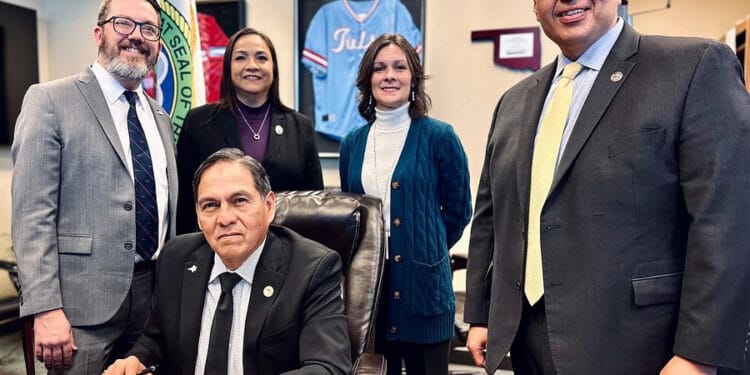

Tulsa's Gilcrease Museum continues repatriation efforts with return of ancestral remains to tribes

The Gilcrease Museum is returning ancestral remains to tribes.
The museum’s board of trustees voted Tuesday morning to give back the remains of Ponca Native Americans to their respective lands in Oklahoma and Nebraska. The move falls in line with the Native American Graves Protection and Repatriation Act.
The museum — which is run through the city and the University of Tulsa — periodically sends these requests for repatriation to city council for full approval.
Laura Bryant, who coordinates these returns for the museum, said repatriation is about returning items that “should never have ended up in museums.”
"For the last about six to eight years is about when we’ve been particularly active, and since then, we’ve repatriated a large number of ancestors and cultural items, and we’re happy to be working with our tribal partners," said Laura Bryant, who oversees the process for the museum.
Passed in 1990, the Graves Protection and Repatriation Act orders museums to return "Native American human remains, funerary objects, sacred objects, and objects of cultural patrimony," according to the National Park Service.
Bryant says many institutions have recently started to return artifacts protected by the federal law.
"Most tribes, especially in Oklahoma, have a tribal historic preservation officer, or a NAGPRA representative, that we work directly with, who works within their government office. And so we work with those representatives to have these conversations and review those items to make those determinations within the law," Bryant said.
The Gilcrease Museum is currently closed for renovation. Tulsans approved the final dollars for renovation with the passage of Improve Our Tulsa 3.

Impact fund invests $3M in Tocabe Indigenous Marketplace

BY TRIBAL BUSINESS NEWS STAFF
A northern California-based nonprofit said last week that it committed a $3 million program-related investment to Tocabe Indigenous Marketplace, a Denver-based company that specializes in Native American food.
The Christensen Fund, based in San Francisco, said the investment will help Tocabe build out its new direct-to-Tribe meal program and support its efforts to develop a supply chain of Native food producers. Denver-based Tocabe owns a restaurant and marketplace that features Native American cuisine and Indigenous ingredients sourced from Native farmers, ranchers, producers and caretakers.
Last October, Tocabe launched Harvest Meals, a line of ready-made, direct-to-consumer meals featuring traditional ingredients from Native producers. Priced between $11 and $16, the ready-made meals — with names like Bison Posu Bowl, Wild Rice Jambalaya, and Blue Corn Mush — can be shipped throughout the lower 48 states and include a medley of ingredients sourced from local and Indigenous partners. Among these ingredients are wheat berries, prickly pear cactus and tepary beans, a legume that’s been grown in the southwestern U.S. since pre-Columbian times.
“It was really an extension of all the work we were doing coming out of COVID with our marketplace launch,” Tocabe Co-Founder Ben Jacobs, a member of Osage Nation, told Tribal Business News last fall. “Other than giving people accessibility to ingredients, we wanted to provide access to quick, convenient, all Indigenous-based meals. We know what we do well, and one of those things is sourcing and distributing food, but also providing fully prepared food.”
Harvest Meals pushes Tocabe into the fast-growing ready-made meals industry, which has seen significant growth in the wake of COVID-19, per research published by industry analyst Grand View Research. In 2021, the market stood at roughly $144 billion, with a projected compound annual growth rate of 5.3% between 2022 and 2030.
The program related investment (PRI) for Tocabe is one of two announced last week by the Christensen Fund, which also said it had made a $1 million loan commitment to support important lending programs of Oweesta Corporation, a Longmont, Colo.-based Native CDFI intermediary.
Both investments are part of The Christensen Fund’s new Purpose-Aligned Investment portfolio to amplify Indigenous-focused investment opportunities and bolster the impact of its endowed assets. The fund's initial Purpose-Aligned Investments in 2023 targeted TAHITO, an Indigenous-led public equity fund rooted in Maori ethics, and Raven Indigenous Capital Partners, an early-stage venture capital firm supporting Indigenous-led businesses, with approximately 70% of its portfolio companies having majority Indigenous ownership.
$500 million credit facility a major milestone’ for Muscogee Nation Gaming Enterprise

BOK Financials’ Loan Syndications and Native American Financial Services teams recently closed a $500 million credit facility for Muscogee Nation Gaming Enterprises - MNGE, the gaming and business arm of the Muscogee Creek Nation, a long-time client of the company.
“This transaction will assist Muscogee Nation Gaming Enterprises in achieving its goals and allow the already successful entity to be strategic and position itself for its next chapter,” said Sarah Alexander, Senior Vice President with BOK Financials’ Native American Financial Services team. “We were excited to arrange this credit facility despite a challenging marketplace.”
The syndication will help the Nation finance their gaming enterprise, as well as fund improvements to casino facilities and various satellite properties owned by the tribe. The line of credit will also allow for development and opportunistic acquisitions, complementing their existing portfolio.
“Muscogee Nation Gaming Enterprises is very appreciative of the efforts and success of BOK Financial Loan Syndication and Native American Financial Services teams in closing our recent $500 million credit facility in a very challenging environment,” said Pat Crofts, Chief Executive Officer of Muscogee Nation Gaming Enterprises. “This credit facility provides capital for future growth, enhancements to current properties as well as re-financing existing debt. Closing this transaction was a major milestone for MNGE.”
“This syndication was an all-hands approach for a great customer of BOKF’s, and we are very proud of what we accomplished for the client,” said Christopher Ralph, Senior Vice President with BOK Financials’ Loan Syndication team.
Principal Chief Signs Tribal Law Bringing Summer EBT Program to Muscogee Reservation

OKMULGEE, Okla. — The Muscogee Nation is partnering with the Chickasaw Nation, Cherokee Nation, Hunger Free Oklahoma and USDA Food and Nutrition Services to bring the Summer EBT Program for Children to the Muscogee Reservation.
The Muscogee Nation National Council met in Emergency Session on Thursday, February 8, and passed two tribal resolutions and a tribal law clearing the way for the Principal Chief to sign and implement the program on Feb. 12.
One of the resolutions, TR 24-027, authorized the Principal Chief to submit a management plan and apply for the USDA funding of $14,666,572 with the commitment of a tribal match of $1,947,618. The other resolution, TR 24-028, authorized the Principal Chief to execute a memorandum of understanding for an intergovernmental agreement with the Chickasaw Nation and the Cherokee Nation, who are both operating Summer EBT programs in their respective reservations and will assist the Nation in implementation.
Both of the resolutions passed unanimously, 14-0, with the law passing 12-1.
“I thought it was important for us as a Nation to step in and make sure these eligible children on our Reservation have a program that meets their nutritional needs throughout the summer,” Second Speaker Thomasene Yahola Osborn said. “Many times, tribes have the opportunity to work together with partners to ensure there are no gaps in crucial services for people who are in need. When we say that we are here for our people, and for our communities, this is what we mean.”
The Summer EBT program will be administered through the Muscogee Nation WIC Program and will serve up to 105,604 eligible children. The program provides $40 per month, per eligible child throughout the summer on EBT cards.
“We’re thrilled to provide this crucial service to families across our reservation, and it’s extra special to work with our fellow tribes and a great organization like Hunger Free Oklahoma,” Principal Chief David Hill said. “We know many children depend on services like this, for them it’s not an issue of politics, but an issue of need. So, we knew how important it was to make this happen.”
Hunger Free Oklahoma, whose mission is to solve hunger issues in Oklahoma through collaboration, expressed pride in joining together for this historic partnership.
“We’re so proud to partner with the Muscogee Nation as we continue to fight hunger in Oklahoma,” Hunger Free Oklahoma President/CEO Chris Bernard said. “We want to thank Chief Hill and Second Chief Beaver and the National Council for their vision and for caring for their communities.”
The complete budget for the program, combining the USDA funding, MCN matching funds and $1 million raised by Hunger Free Oklahoma, totals $16,614,190.




